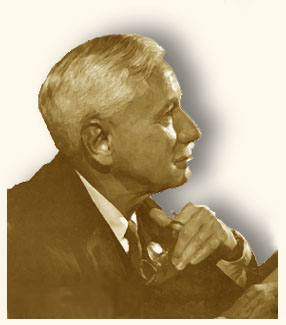
by
Will Durant
 The study of antiquity is
properly accounted worthless except as it may be made
living drama or illuminate our contemporary life.
The study of antiquity is
properly accounted worthless except as it may be made
living drama or illuminate our contemporary life.
The rise of Rome from
a crossroads town to world mastery, its achievement
of two centuries of security and peace from the
Crimea to Gibraltar, and from the Euphrates to
Hadrian's Wall, its spread of classic civilization
over the Mediterranean and western European world,
its struggle to preserve its ordered realm from a
surrounding sea of barbarism, its long, slow
crumbling and final catastrophic collapse into
darkness and chaos -- this is surely the greatest
drama ever played by man; unless it be that other
drama which began when Caesar and Christ stood face
to face in Pilate's court and continued until a
handful of hunted Christians had grown by time and
patience, and through persecution and terror, to be
first the allies, then the masters, and at last the
heirs, of the greatest empire in history.
But that multiple
panorama has greater meaning for us than through its
scope and majesty. It resembles significantly, and
sometimes with menacing illumination, the
civilization and problems of our day. This is the
advantage of studying a civilization in its total
scope and life -- that one may compare each stage or
aspect of its career with a corresponding moment or
element of our own cultural trajectory, and be warned
or encouraged by the ancient aftermath of a modern
phase.
There, in the struggle
of Roman civilization against barbarism within and
without, is our own struggle; through Rome's problems
of biological and moral decadence signposts rise on
our road today; the class war of the Gracchi against
the Senate, of Marius against Sulla, of Caesar
against Pompey, of Anthony against Octavian, is the
war that consumes our interludes of peace; and the
desperate effort of the Mediterranean soul to
maintain some freedom against a despotic state is an
augury of our coming task. De nobis fabula
narrator: of ourselves this Roman story
is told.
.